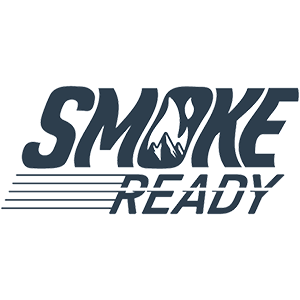
Prepare now for wildfire smoke
Spokane Regional Clean Air Agency: Lisa Woodard, 509.863.2463, lwoodard@spokanecleanair.org
Spokane Regional Health District: Kelli Hawkins, 509.324.1539, khawkins@srhd.org
Smoke Ready Week: June 9-13
SPOKANE, Wash – The Spokane Regional Clean Air Agency (Spokane Clean Air) and Spokane Regional Health District (SRHD) are joining other agencies across the Pacific Northwest to promote smoke preparedness during next week's “Smoke Ready Week,” a week that focuses on ways residents can prepare now for summer’s potential wildfire smoke.
Dr. Francisco Velázquez, SRHD Health Officer, said, “Exposure to wildfire smoke can affect your physical, mental and psychological health, so taking steps ahead of time to protect yourself and those you care about can provide peace of mind.”
“The latest heat and drought outlook points to a potentially active wildfire season," said April Westby, Spokane Clean Air Executive Director. "Preparing now is prudent, and includes knowing how to access air quality forecasts and current air quality and taking steps to reduce your exposure to harmful smoke particles. This includes measures you can take now to improve your indoor air quality when it isn't safe to be outside,” added Westby.
Smoke Ready Week uses each letter of the word SMOKE to share the daily readiness tips:
S – Stay Informed.
M – Minimize Exposure.
O – Optimize Your Air.
K – Keep a Plan.
E – Ease Your Mind.
Monday: Stay Informed. Wildfire smoke can blow in quickly and linger. Stay a step ahead of poor air quality by checking daily forecasts and current conditions at Spokane Clean Air - Current Air Quality. If you are traveling in other areas of the state, a statewide resource for smoke and fire conditions is the Washington Smoke Blog. You can also subscribe to receive localized air quality alerts by email or text. Sign up at Enviroflash.info.
Tuesday: Minimize Exposure. If you or someone in your family is sensitive to air pollution or has a health condition, talk with your healthcare provider before wildfire season begins. You may benefit from using an N95 respirator or other particulate mask during smoky conditions. Now’s the time to gather protective gear and refill medications so they’re ready when you need them. Planning makes it easier to protect your health when the smoke rolls in.
Wednesday: Optimize Your Air. When it’s smoky outside, you’ll need to spend more time indoors. However, indoor air quality can also be harmful. Improve indoor air quality by regularly changing your air system's filters and using the best filter the system can handle. Avoid frying food, vacuuming, burning candles, and other activities that add pollutants to the air. Let’s all take action to breathe cleaner air and be #SmokeReady.
Thursday: Keep a Plan. Smoke from fires can travel thousands of miles. Breathing tiny smoke particles—called PM2.5—is harmful to everyone. Children, older adults, pregnant people, and people with asthma, heart disease, or other health conditions are especially vulnerable. Protect yourself and those you care about in advance of the smoke:
- Refill essential medications
- Gather any specialized equipment you might need
- Have an evacuation plan that includes a cleaner air space
- Know who to call for help
- You may never need to use your plan, but having one reduces stress and keeps you ready.
Friday: Ease Your Mind. Wildfire smoke isn’t just hard on your lungs; it can take a toll on your mental health, too. When smoky air keeps you from doing the activities you enjoy, take care of yourself and check in on those around you. Think about what helps you stay grounded and calm:
- Get plenty of rest
- Connect with friends and family
- Try calming practices like meditation, yoga, stretching, or listening to music
- Reach out for help if you’re feeling overwhelmed
- Your well-being matters, especially during times of stress.
For more information on wildfire smoke and how to reduce exposure to smoke, please visit:
